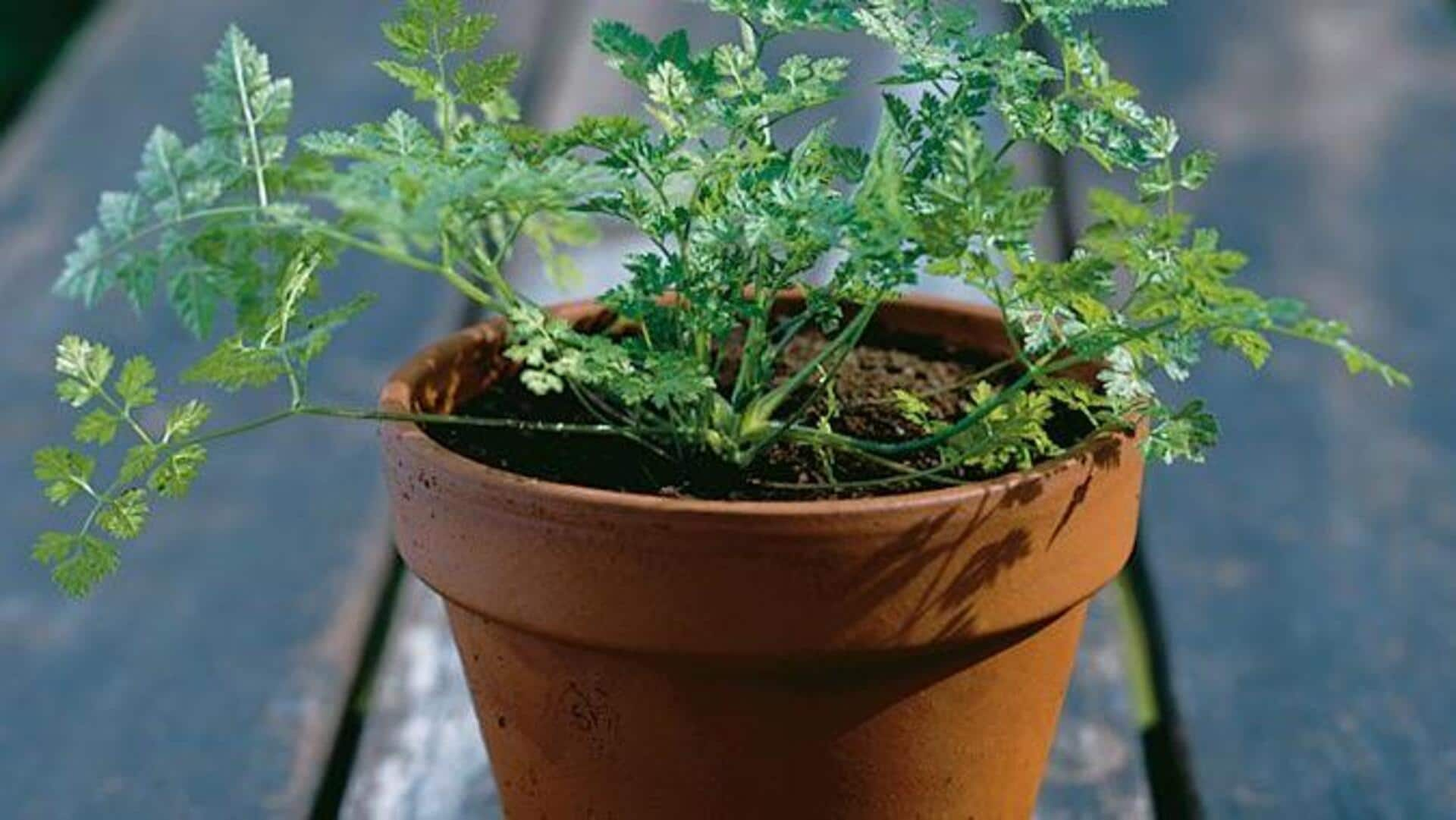
How to grow chervil at home
What's the story
If you love fresh herbs, growing chervil indoors can be a rewarding experience. This delicate herb (often compared to parsley) thrives indoors when given the right conditions. With its mild flavor and versatility in cooking, chervil makes an excellent addition to any kitchen garden. By understanding its basic needs and giving it proper care, you can easily grow chervil in pots at home.
Pot selection
Choosing the right pot and soil
Choosing the right pot is essential for indoor chervil growth. Choose a pot that's at least six inches deep and has sufficient drainage holes to avoid waterlogging. The material of the pot may differ, but clay or ceramic pots are mostly preferred as they allow proper air circulation around the roots.
Light requirements
Providing adequate light
Since chervil enjoys moderate light, it is perfect for growing indoors. Ideally, you should keep your potted chervil beside a window, where it can get indirect sunlight for four-six hours daily. If natural light falls short, you can use fluorescent grow lights. Place them about 12 inches above the plant to mimic best growing conditions efficiently.
Watering tips
Watering and humidity needs
For best chervil growth, keep the soil consistently moist. Water the plant when the top inch of soil feels dry to touch. However, avoid overwatering, which can lead to root rot, a common problem for indoor plants. To give it an added boost, try keeping the humidity around 50%. This creates an environment close to its natural growing conditions, leading to healthier plants.
Care techniques
Fertilizing and pruning practices
Fertilize your indoor chervil every four weeks using a balanced liquid fertilizer diluted to half strength. Regular pruning promotes bushier growth; trim back stems by one-third as soon as they reach six inches tall. This practice not only promotes new growth but also gives you fresh leaves for culinary use.